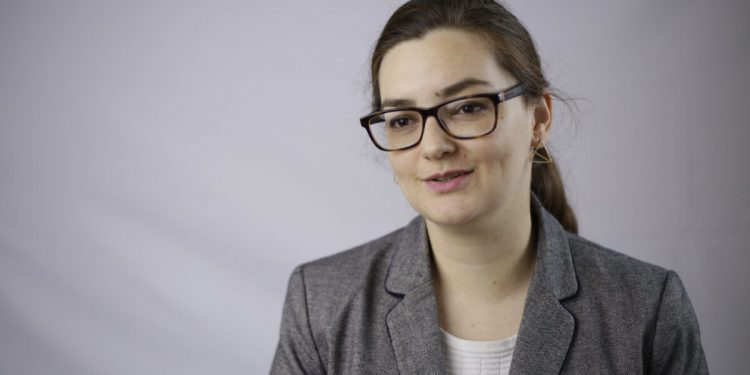Environmental law organisation ClientEarth is challenging the EU’s sustainable finance rules because it defines biomass, bio-based plastics and chemicals that make plastics, as sustainable.
Biomass includes wood, energy crops and waste from forests or farms. Although the Intergovernmental Panel on Climate Change (IPCC) defines bioenergy as a renewable form of energy this is disputed.
ClientEarth forests lawyer Filippo Mattioli said, “To claim that forest biomass significantly contributes to combatting the climate crisis is absurd.
“Burning wood for energy means cutting down trees and depleting the world’s forests, releasing dangerous levels of carbon into the atmosphere while devastating the ecosystems and decreasing carbon sinks critical to a healthy planet.”
The team has filed an internal review request to the European Commission for the unlawful labelling. This is first step before being able to bring a court challenge.
“The taxonomy will increase investment in plastics instead of shifting to a circular model”
The sustainable finance taxonomy is a list defining which economic activities can be labelled as green investments.
The first so-called “Climate Delegated Act” was adopted in June 2021 and has been applicable since January 2022.
The team adds bio-based chemicals, such as ethylene and propylene, used to make plastics should not be classified as sustainable under the Climate Delegated Act.
ClientEarth plastics lawyer Tatiana Luján said, “Ethylene, propylene and the other chemicals in question are made of fossil fuels and they are mostly used to make single-use plastics – which release carbon into the atmosphere after they are disposed of.
“Bio-based plastics are also mainly used for single-use plastic applications. Classifying these as sustainable is not only stupefying, it’s also unlawful.
“It has turned into a greenwashing exercise”
“As it stands, the EU taxonomy will only increase investment in plastics instead of promoting the much-needed shift to a circular model.”
A further group of non-governmental organisations (NGOs) supported by the Forest Litigation Collaborative is making a challenge on similar grounds.
Elsie Blackshaw-Crosby of the Lifescape Project, said, “The taxonomy has turned into a greenwashing exercise.”
Their challenge is brought by Save Estonia’s Forests, ROBIN WOOD (Germany), Clean Air Committee (Netherlands), Workshop for All Beings (Poland), ZERO (Portugal), 2Celsius (Romania), and Protect the Forest (Sweden).
Two legal teams, Clementine Baldon of Baldon Advocats and Peter Lockley and Ben Mitchell of 11KBW are leading the case, with legal and scientific support by the Lifescape Project and the Partnership for Policy Integrity.
“The criteria require only marginal reductions in carbon loss compared to business as usual”
Another 50 NGOs signed an open letter to the European Commission (EC) declaring their support for the review and challenge.
The group says the 2020 Taxonomy Regulation aims to establish a labelling system so that investors and consumers know what economic activities are good for the environment.
It is implemented through delegated acts, the first of which sets conditions for climate mitigation and adaptation, as well as how such economic activities should avoid doing significant harm with regard to water resources, pollution, ecosystems, and the circular economy.
To designate forestry activities as sustainable and contributing to climate mitigation, the taxonomy criteria require only marginal reductions in carbon losses compared to business as usual scenarios.
Fenna Swart of Dutch NGO Clean Air Committee said, “Forests are being destroyed for wood pellets imported to the Netherlands and around the EU. The sustainable finance taxonomy is supposed to help avoid greenwashing. Including burning forest wood for energy as a sustainable’ activity has made a mockery of the process.“
“The European Commission has thrown out scientific evidence for financial tools that prop up polluters”
The request for review points out that the criteria do not include acknowledged EU priorities such as ending logging in primary forests.
“Europe’s green finance must not support forestry or bioenergy projects that harm ecosystems, increase risk of large forest fires and worsen climate change,” said Nuno Forner, Policy Officer at ZERO.
Clementine Baldon of Baldon Advocats said, “The Commission’s own science staff have been warning for years that so-called sustainability criteria for burning forest wood greenlight forest destruction and increased greenhouse gas emissions.”
Referring to the RED II biomass criteria adopted into the Taxonomy, Dr Mary Booth of the Partnership for Policy Integrity said, “The European Commission has thrown out scientific evidence in favor of financial tools that will prop up polluters at the planet’s expense. This is a cut and paste job from already-discredited criteria with zero legitimacy.”
“The European Commission has breached the public trust and violated the law by advancing a regulatory scheme that greenwashes climate pollution and will continue business as usual exploitation of forests,” said Elin Götmark of Swedish NGO Protect the Forest.























